In this issue:
Lift off (a short story about an escape)
Revival Boiling Point
Aftershow Closing The Book of Prince and the ethics of consumption, Val Kilmer in his own words, Moonbeam Levels with SE London’s Sam Akpro 🎧
The past fortnight has been tough. My father went to hospital after feeling very frail and fearful of another fall. The root cause was unclear. Something to do with severe rheumatoid arthritis or the side effect of this cocktail of medication he is on.
He began to retain a lot of urine, which threw his electrolytes out of balance. Though I didn’t know it then, there is a clear link between UTIs (urinary tract infections) and delirium. A few Mondays ago, I visited him and he spouted wild fictions to me for 90 minutes. It was relentless … and harrowing.
A stranger came to his house and took his iPad. Another person called about a refugee appeal and scammed him. The suitcase in the cubicle next door was swiped from his bedroom. The immigration office rang and said someone had cloned his identity. He was on a movie set (in his nightgown) with Shah Rukh Khan. That’s just the stuff I could decipher.
Searching for some gallows humour, the writer in me had to envy his vivid imagination. Otherwise, I sat there feeling utterly hopeless, watching his life, my life, our shared experiences as a family (once four but now two) flash before my eyes. I feared he had reached a point of no return. In despair, I broke down at his bedside. Dad didn’t even notice.
I won’t exhaust you with the full hospital diary and the twists and turns of his condition. Though dad’s mind is clearer now, he is dealing with a hefty bout of pneumonia as well as COVID. He is preoccupied by death and paperwork, incapable of acknowledging a smidgeon of progress.
To watch a parent struggle to breathe, swallow or support their own weight is among the most humbling of experiences. As guilt eclipses reason, you ask yourself if you could have done more to avert the situation. Or to express care and affection with greater consequence.
You search for missed opportunities to help them squeeze more pleasure and enjoyment from a life that’s become defined by limitations. This is the “man who struggles to have a good time”, so often “exhausting in his asceticism” as I have previously written.
We are entering a new phase, which has come quicker than I imagined. When dad is discharged he will need more assistance from day to day. I will stay with him for a few weeks and help him get back on his feet. Improve the diet, up the exercise, prescribe more fresh air and sunshine (we hope).
If you have any advice on caring for the elderly and motivating them, please send it.
Trips to the hospital are draining enough but then I have also been dealing with a poorly puppy who ate something he shouldn’t have in the forest. The perils of being a Basset dad. This lowrider is always sticking his nose where he shouldn’t and is forever hungry. A dangerous combination.
There’s been lots to clean up as I slid into full-on parent anxiety. Being tethered to this agent of chaos has sapped my energy and kept me from exhibitions, talks, movies, gigs and other things that feed my mind and lift my soul. In short, writing has felt beyond me.
However, I wanted to keep in touch 👋🏾 and share a few things that are relevant at the moment. Let’s start with something partly inspired by my old man.
Lift off
A short story I wrote during one of my mentoring sessions with the Ministry of Stories and finished off later. The kids at Morpeth Secondary School in East London were working on their own story based in a world they had imagined together. It’s only fair that the mentors also put pen to paper. I went somewhere completely different.
Dedicated to any elders who spend far too much time in and out of the hospital and long for adventure.
***
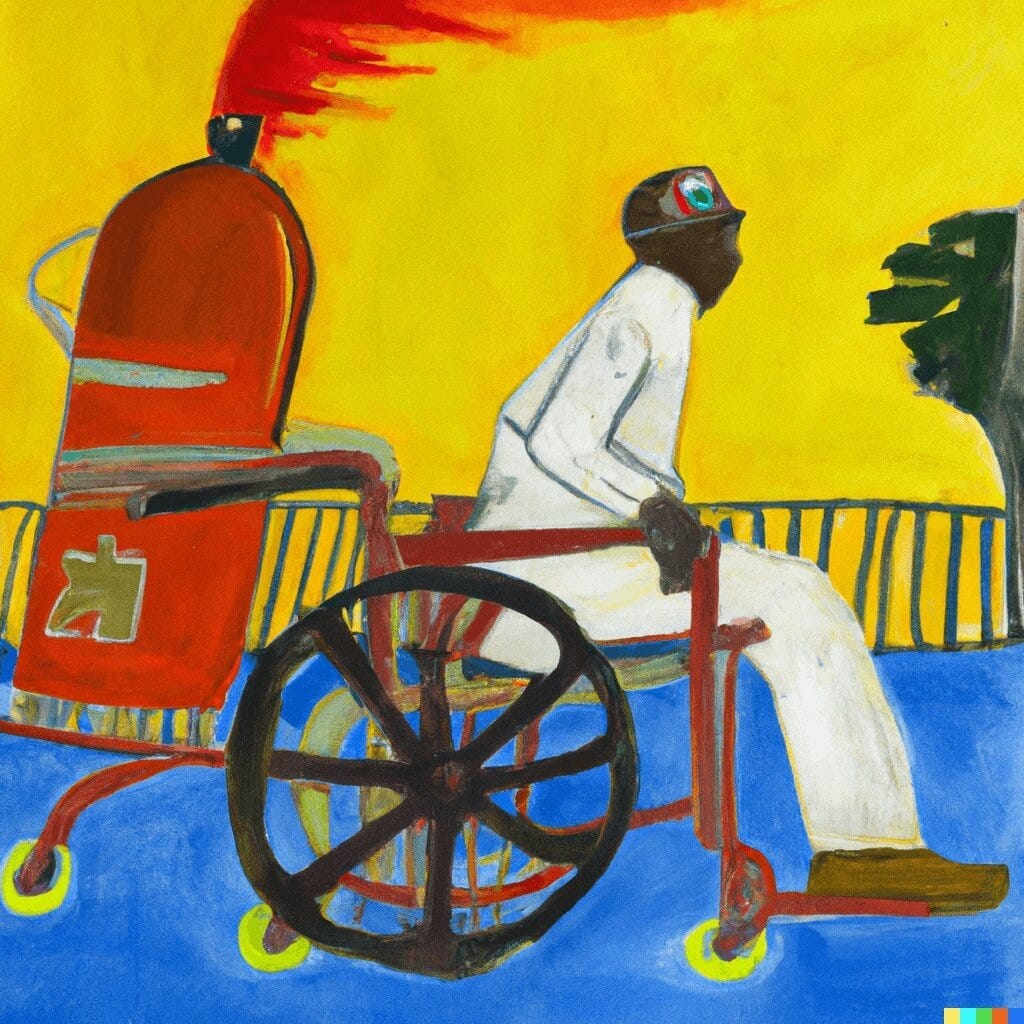
Monty glanced at his bashed-up watch and thought … it’s now or never. No one had patrolled the corridor for at least an hour.
Even a forgetful old codger like him could tell by the pause in flat-footed steps that echoed day and night. Thuds so loud, it was as if they were made by ogres … with the toxic breath to match.
“Monty, you can do this,” he told himself, all in a dither. “Think about all those nasty things they say under their breath – waste of space, always complaining, someone put him out of his misery.”
He remembered their scolding stares, like hot pokers through the soul. The sludge they would dish out and throw in front of him, rancid and lukewarm.
This was no way for a weary pensioner to be spending his golden years, confined to this decrepit hope-drain of a ward somewhere in the barren underworld of Forelornmore. The place where they put most wrinklies out to wilt until they wither like untended plants.
His beloved Amina, by Monty’s side for half his life, always said, “When the time comes to go it alone, always remember how we used to throw caution to the wind. Roll the fluffy dice. Pull a sharp handbrake turn left. Suck in a big ol’gust of chance.
“Your body may not be willing, but show that body who’s boss. Promise me you won’t waste away in some dungeon like a geriatric who spends their days killing time and agonising about their health. The television on, only for background noise. ‘We’ll see how it goes’ – your stock answer to everything. But it never does.”
That was the crux of it. Monty used to be one of those folk. It was Amina who changed everything, shaking up his bag of bones and helping him to find newfound awe in unexpected places. A walk in the park, a lucky dip in the market, a wrong turn on the way home.
Now look at him, gathering dust in this rusty wheelchair. Confined to it. And popping pills he didn’t even need.
He closed his eyes and began to sift through his memories, trying to find the best of himself to feed on, as if to summon the person he needed to be once again.
Just then, a great force began to swell from his temples and along his spine, coursing and meandering down to his fingers and toes.
It felt like the most peculiar migraine, sensational and overwhelming in a good way. And just like that, Monty began to make a run for it. Well, more of a stop-start roll but he soon built up momentum.
Suddenly, a door swung open at the other end of the corridor. He pulled up and shuddered. Monty recognised that sound. It was the unmistakable stomp of the nightwatchman Mr Astley – “Ghastly” to all the ‘inmates’.
He carried this ridiculously enormous truncheon and smelled of raw onion soup with flakes of mould. Catch a whiff of him and you’ll lose a year, they would say.
Monty began to panic.
“What now?”
The ominous dooof-dooof getting louder and louder. Glancing to his left, he spotted a fire extinguisher hanging on the wall.
Without a thought of what could go wrong, which felt so refreshing, he clipped it on his wheelchair and squeezed hard like he was engaging a turbo boost on a racing car, only with a little more mess to clean up.
No … imagine something even bigger. It was like he was engaging thrusters on a rocket.
“How do you steer this thing?” Monty hadn’t a clue. As it happened, he was heading straight for Ghastly like a stench-seeking missile. The chief ogre snarled, smoke bellowing out of his nostrils as he advanced, undeterred.
Monty rose above him right before impact, scorching a perfect runway through his pathetic excuse for a haircut and blasting open the doors just beyond.
He soared and soared, clipping onto the wing of an airplane bound for who knows where.
Monty had this giddy smile on his face, broader than it had ever been. His body tingling and fortified like nothing could harm him.
Thoughts of sunny beaches and far-flung islands crossed his mind.
Would he make it? Could be survive?
It didn’t matter. Forelornmore was squarely in the rear-view mirror and the future gleamed with possibility for the first time in a long time.
He slipped on his old cash and carry sunglasses, sucked in a big ol’gust of chance and thought, ‘Let’s see how it goes, eh.”
Before Adolescence
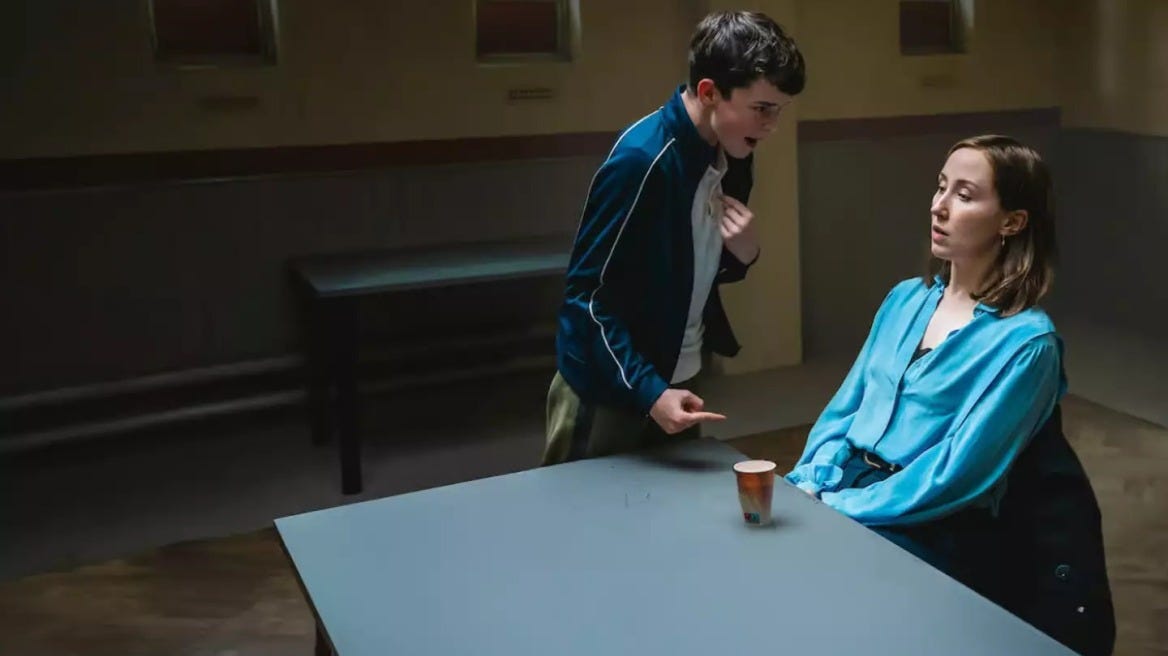
Stephen Graham and Jack Thorne’s mini-series about teen murder, masculinity and misogyny is now Netflix’s third most-watched English language show of all time. That’s more than 124 million views.
Few dramas have brought complex social issues to the forefront and dominated public discourse like Adolescence. If you’ve worked with young people, come across the word ‘incel’ or the violent content far too easily available online, its message will come as no surprise.
It’s time to take a greater interest in the care and safety of teenagers instead of leaving them to their own devices. A responsibility that falls not only on parents and teachers. There is complicity in this neglect and it’s something you can’t address simply by plonking classes in front of a TV and pressing play, Keir Starmer.
Without open lines of communication and the offer of refuge to impressionable kids who feel lost, evil will emanate from a screen and rage will build in the vacuum (stoked by master manipulators). We can all be guardians, as contextual safeguarding founder Dr Carlene Firmin explained on the Safe podcast.
But this stark reality takes nothing away from the fine acting (particularly by rookie Owen Cooper in episode 3 😲) and the direction of Philip Barantini who I first came across when he made the movie Boiling Point with Graham. That spawned a BBC TV show, which I wrote about here.
The four-part series Boiling Point is as smooth a transition from film to TV as I can remember. You still get that intense, combustive environment that keeps us on a knife edge à la The Bear. But now writers James Cummings and Dan Cadan have time to explore the lives of staff outside the kitchen. That makes a far more layered and intriguing viewing experience than director Philip Barantini’s vein-popping one-shot feature from 2021.
Have you watched it? Thoughts, please. Unfortunately, a second series may not come, despite widespread acclaim for the first.
The Unknowable One
So it’s official. Ezra Edelman’s nine-hour Prince documentary has been canned by Netflix. A film the Oscar winner spent more than five years working on with rigour and integrity, using access to the hallowed vault.
He was trying to understand who this guy really was, flaws n’all. The struggles within, between good and evil. To find a through line across all his phases and complexity.
The estate claims there were factual inaccuracies in the first cut and that it was sensationalised. Their lawyer claimed it would do “generational harm” to the artist.
I wrote about the project last September after reading Sasha Weiss’ incredible piece, The Prince We Never Knew.
I’ve gleaned enough from this article to see how monumental a character study the documentary could be. A majestic testament to his greatness that also serves to crack the facade of invincibility that (in musician and documentary maker Questlove’s eyes), haunts black men in particular.
In its place will probably be a hagiography that poises a minimal threat to the estate’s coffers. Edelman has branded the decision a joke and explained why in the New York Times podcast The Daily.
“… why is warts and all such a terrible concept? Why is it not OK to know about a human…
“You just want to love his art, but have him remain unexamined? But if we examine him, and you maybe are going to appreciate that art that you love so much, even more, you might appreciate the struggle.
“By the way, this guy got kicked out of his house when he was a teenager. He lived in the basement of his best friend. He created himself out of whole cloth.
“His will, his drive as a person, as an artist, the struggle he went through… Yeah, that he happened to also be a genius is unparalleled. That’s also what the movie is about.
“Why can’t we hold two truths together? It’s not that hard. These things go together. His genius, by the way, would not have wrought Prince, would not have created Prince, genius alone. No, genius plus drive plus trauma. Those are the things that created Prince.”
The director then unloaded on Pablo Torre Finds Out, underlining the absurdity of a decision to shelve a project that would have magnified his greatness while placing the music in context.
"They're afraid of his humanity. This is a gift, a nine-hour treatment about an artist that was, by the way, fucking brilliant. Everything about who you believe he is is in this movie. You get to bathe in his genius."
Jill Jones, a former protégé and partner of Prince who has accused him of abuse, agrees that to deny his humanity is to diminish our appreciation of him.
“The world is unwilling to accept Prince as a man, only as a myth. Without the elaborate stagecraft, without the veil of mystery, his raw humanity is deemed insufficient. His struggles, his journey, his sacrifices, all the elements that shaped him will remain obscured.”
As much as I am a superfan in the sense that my adoration verges on worship, I am not willing to turn away from an uncomfortable truth. As if shielding an artist from scrutiny guarantees us optimum enjoyment of their art.
Ok, it might… It’s easy for one blotch on their record to stain all future encounters. They become forever tainted in our minds.
Can’t we separate the art from the artist? Vanessa Kisuule, poet and author of Neverland: The Pleasures and Perils of Fandom, says we can but asks, should we? To deny yourself the joy of art that moves you will not atone for what that artist has done.
Claire Dederer, author of Monsters: A Fan’s Dilemma, would phrase the question as ‘Should you?’ Why? Because “We is a way of simultaneously sloughing off personal responsibility and taking on the mantle of easy authority,” she writes. “We is corrupt. We is make-believe.”
In other words, our ability to enjoy and appreciate someone’s art – the limits of our tolerance for their crimes and misdemeanours – are bound up in our own morality, identity and history.
The art and the artist are also intertwined in Dederer’s mind. You can't remove the stain, no matter how great they are. And nor should you. “Genius is the name we give our love when we don’t want to argue about it; when we want our opinion to become fact,” she says. “When we want to push our obsession onto the next guy. When we don’t want to hold our heroes accountable.”
There is value in embracing this dissonance and accepting a hero’s imperfection. In confronting the fact that something was made in the midst of trauma, either experienced or inflicted. The prospect of understanding how that came to be is worth the risk for me.
Waiting impatiently for a leak…
Moonbeam Levels with Sam Akpro
I am drawn to the elusive ones. Artists who dwell in those in-between spaces — liminal, amorphous, ephemeral – particularly musicians who are often pigeonholed and pegged to genres. That’s why Ghanaian-born, Peckham-raised Sam Akpro stood out from the jump.
There’s almost constant motion in his music, where a song might take us from a grungey raw riposte to a hazy soundscape in a few minutes. Nocturnal murmurings and rumblings. Bass and drums going for the gut, fx beckoning and beguiling like floaters in the murky night sky. Guitar in one hand, synth in the other, he’s that guy making connections between Sonic Youth and The Alchemist and a whole lot more.
There’s also space, which we talked about in this podcast special. Sam knows how to hold it and harness it, punctuating it with pithy confessions and resolutions. The one who “woke up just to wake again”, who knows that “cutting corners in the dark, won’t get you far” around here.
His past releases suggested an individual with his own ideas. Someone open to collaborating with whoever he crossed paths with, and yet set on navigating his way through the maze. Going left, way out west…
Debut album Evenfall feels so much more assured. A record of serious conviction where all that matters is catching a vibe and moving with real intention. It’s the sound of someone who knows what they want to say and how. If you get it, Evenfall will feel more cohesive than disparate.
The album is very evocative of London life in 2025, with all the restlessness, paranoia, anticipation and impulse that the metropolis brings for a youngblood who’s trying to find their place in it all.
Settle in as Sam and I chop it up on myriad topics including finding community in the crowd, how ideas form, writing from somewhere real and staying true to yourself, having faith in the listener and the role of videos and gigs in presenting his ever-expanding world.
Or check the special extended version, which was broadcast on SMFM. I have a residency on the 14th of each month (4pm to 6pm GMT).
If you are in London, Sam is playing MOTH Club on 24 April.
One for my Huckleberry
We are so good at shrinking movie stars … to roles, rumours, moments, memes. Imagine reclaiming your own mythology for a couple of hours and sharing what others have probably never seen or heard before? How might they see you then?
After watching the documentary Val, I was engrossed in Kilmer’s world. Everyone has their favourite role of his – Iceman, Madmartigan, The Lizard King, Simon Templar, Doc Holliday, Elvis. He’s all of them and none of them.
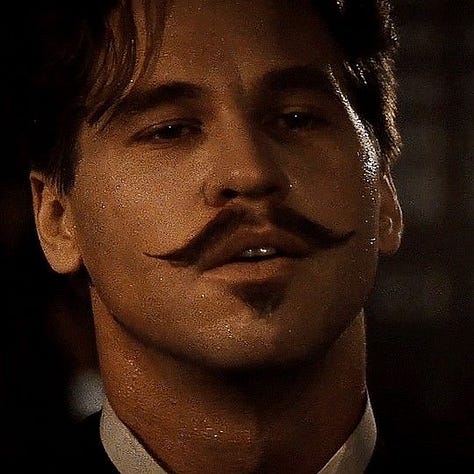
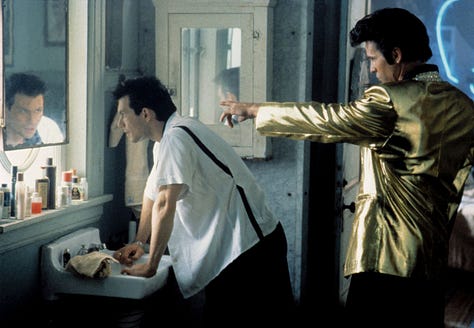
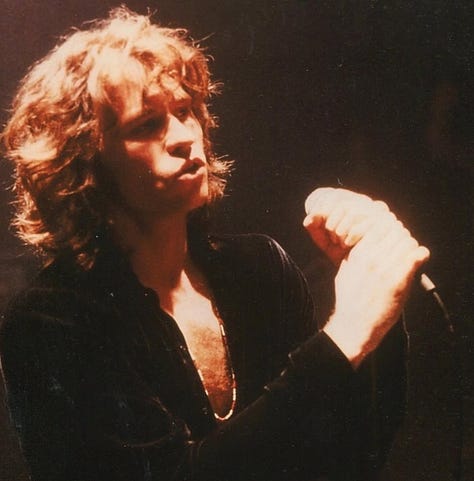
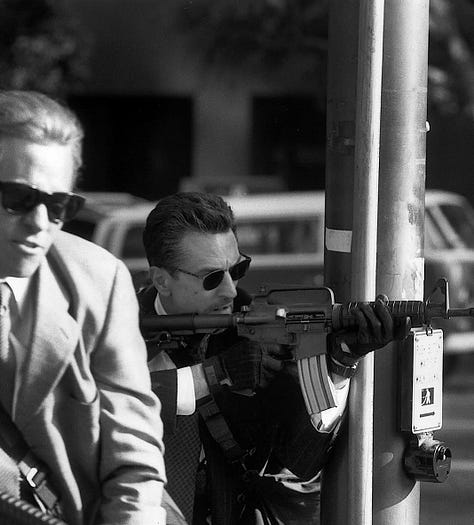


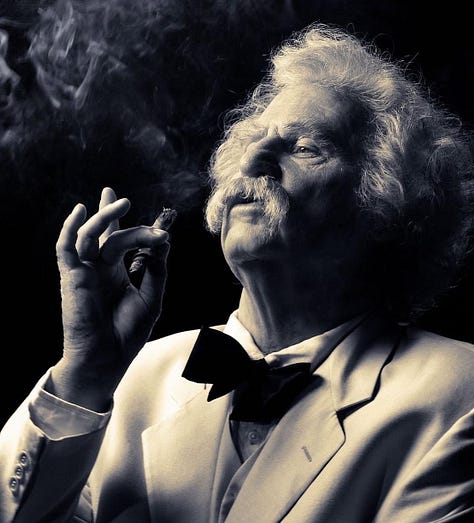
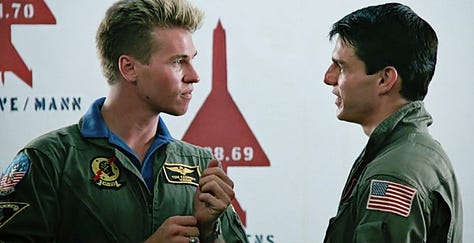
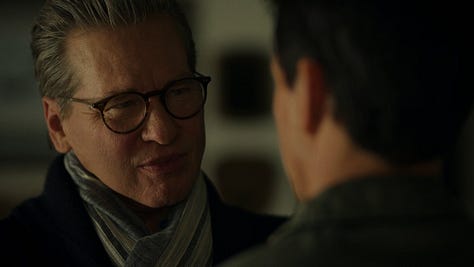
Many of us have read the stories about an irascible and impetuous actor disrupting movie sets such as The Island of Dr Moreau. You think you know celebrities like him but that’s just the Hollywood version. Such ‘flaws’ could easily be the cues of commitment – to craft, to beliefs.
Square-jawed and brooding with intensity, he’s had a string of famous partners including Cher, Cindy Crawford, Daryl Hannah, Ellen Barkin and Joanne Whalley, of course, who captivated him on stage at the Royal Court years before they married. He’s easy to dismiss as an egotist. That makes a juicier headline, right.
What you need to know about Val Kilmer is that he was truly an artist, or as two-time collaborator Oliver Stone puts it “an advanced human being”. Studious and obsessive about his passions.
He’d been painting since childhood and used to make lo-fi movies at home in Chatsworth with talented brother Wesley, who tragically drowned after an epileptic fit. He studied at the drama department of Juilliard and was one of the first under 17 to perform on Broadway.
He was a poet, in spirit if not in word. Val thought of himself as intelligent and sensitive, with “the soul of a clown”. Which is to say, he thrived on living the moment and had a very unique way of channeling its energy, both light and dark.
Through his work, he tried to ponder the liminal space between reality and illusion. He put a part of himself into each character; in turn, they became part of him. That’s how you find the truth in your work. But it comes at a price: in the documentary, he alludes to the belief of Native Americans that to take their photograph is to steal one’s soul.
He’d previously written the autobiography I’m Your Huckleberry, which revealed a thoughtful side, uttered in his very idiosyncratic voice. This film brings us even closer.
The spark for the project was the fact that “cinematographer” Val had been recording his life, amassing more than 800 hours of footage. Co-directors and editors Ting Poo and Leo Scott (with assistants) digitised and spliced clips into an authorial film that feels so intimate and confessional, more like an extended voicenote or video diary than This Is Your Life.
The atmosphere is unique, to say the least. Val does appear, unlike Brando in another vivid archival feature, Listen To Me Marlon. But he’s a little different than how you might remember him. The ravages of throat cancer and a tracheostomy had rendered him almost unrecognisable to the ear, like an apparition who largely speaks to us through his son Jack, the narrator.
But he didn't stop living. His unshakeable Christian Scientist faith and drive to create saw to that. (On which, you must read Taffy Brodesser-Akner’s profile in the New York Times.)
The star is gracious in reliving the past with fans at screenings, larks around with his children, throws himself into his painting and scrapbooks, and beams with enthusiasm for Helmel Studios, a community arts hub we founded in Southern California.
His obsession with Mark Twain is decades long and it was during his one-man theatrical tour of Citizen Twain that he first lost his voice. His ambition was to write, direct and star in a “classic” movie about the writer who is “as big as America”.
Imagine getting to that point in a 30-year-plus career and suddenly contemplating it’s all over. It’s a mark of the man that he looked to his other senses and abilities to remain engaged in the world.
A few bits that stayed with me:
The 16mm Jaws home remake with his brothers
The heated exchange with an incensed acting coach at Juilliard
Top Gun crew on the dancefloor
Moreau director John Frankenheimer in a tense stand-off with Val about filming before rehearsals
Brando in the hammock and that looong fade
Tender moments with his babies in the wilderness of New Mexico (featuring a coin-operated Batmobile 😮)
The moment where an exhausted Val begins to fade at Comicon London after scribbling “You can be my wingman anytime” for the umpteenth time. Was it fatigue or just sombre resignation?
Already looking forward to a second viewing and the new things I’ll see. But there will be a tear in my eye 🕊
Cued up Thunderheart
Underrated? Kiss Kiss Bang Bang


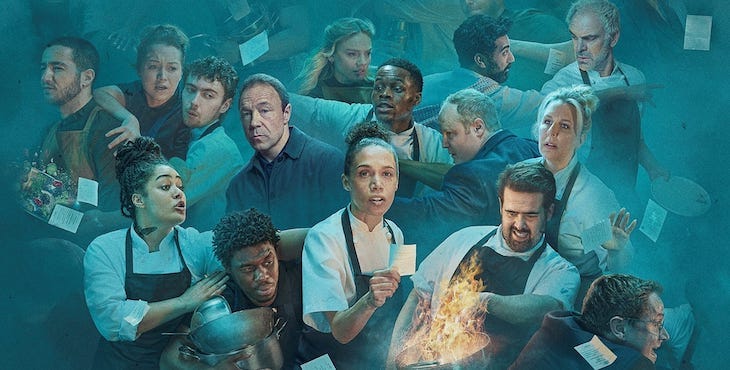
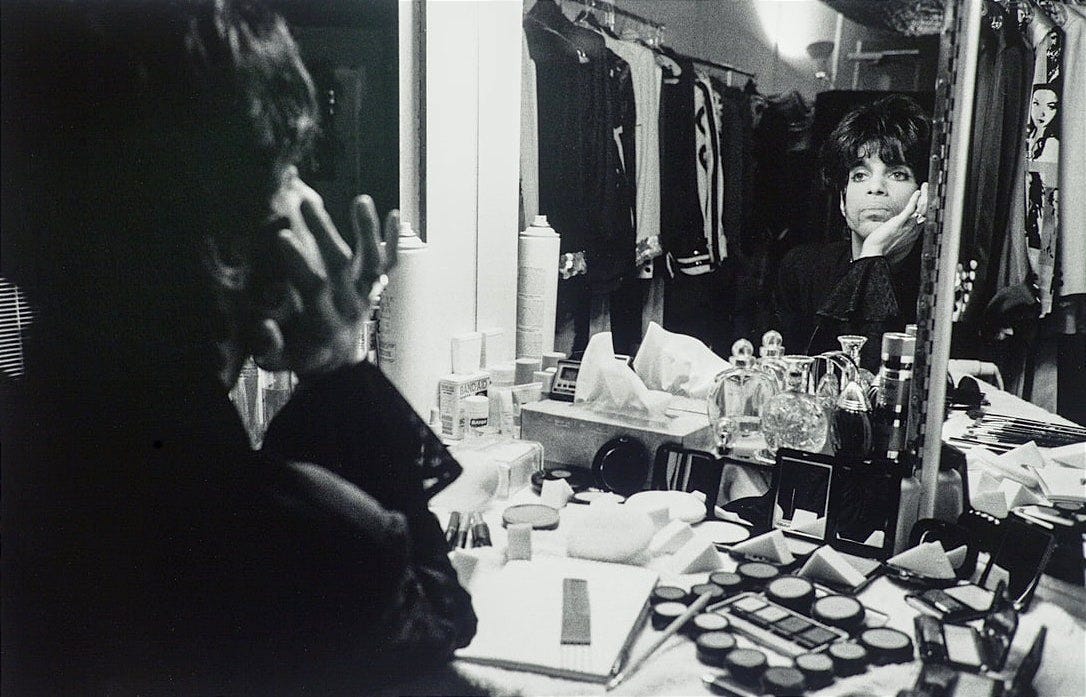
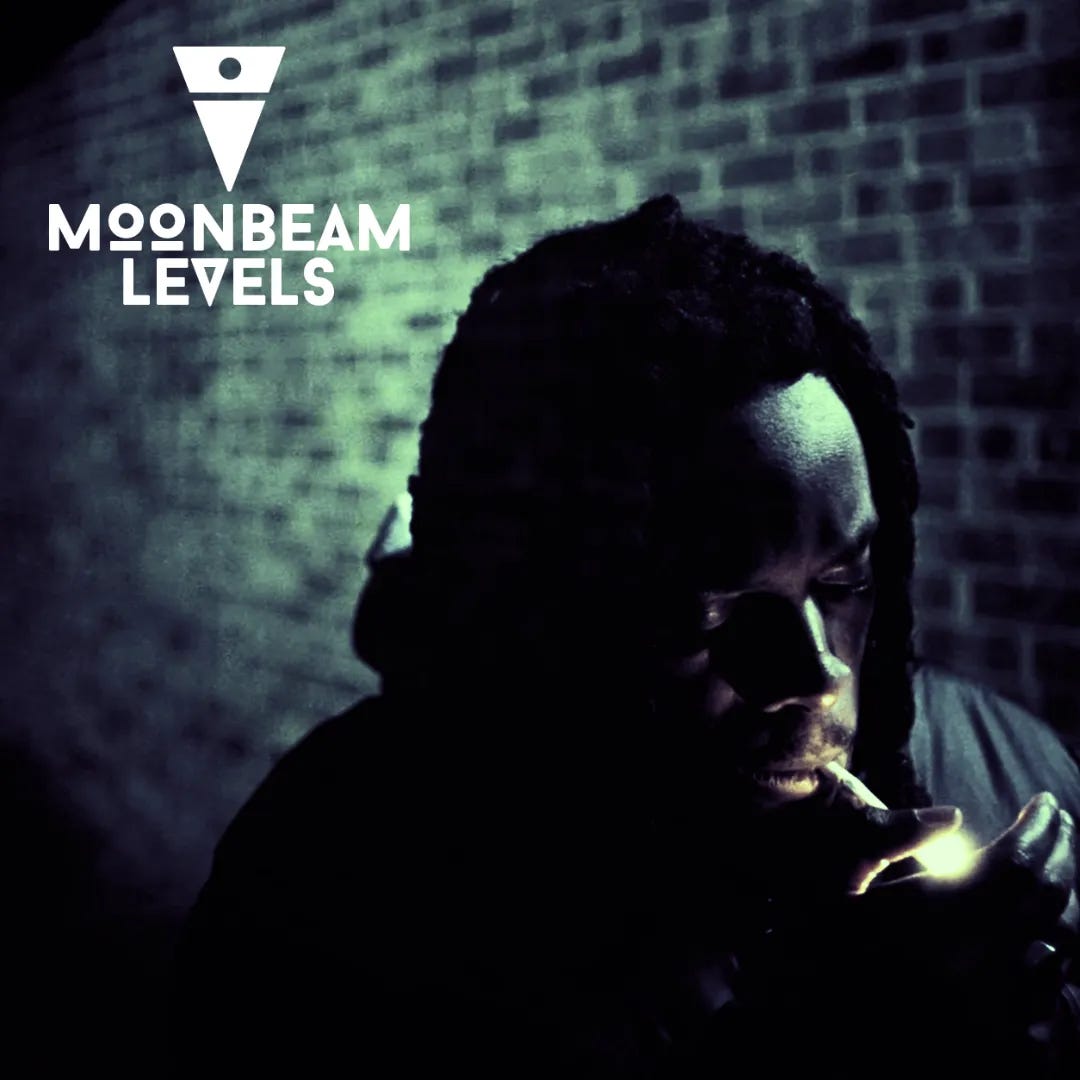
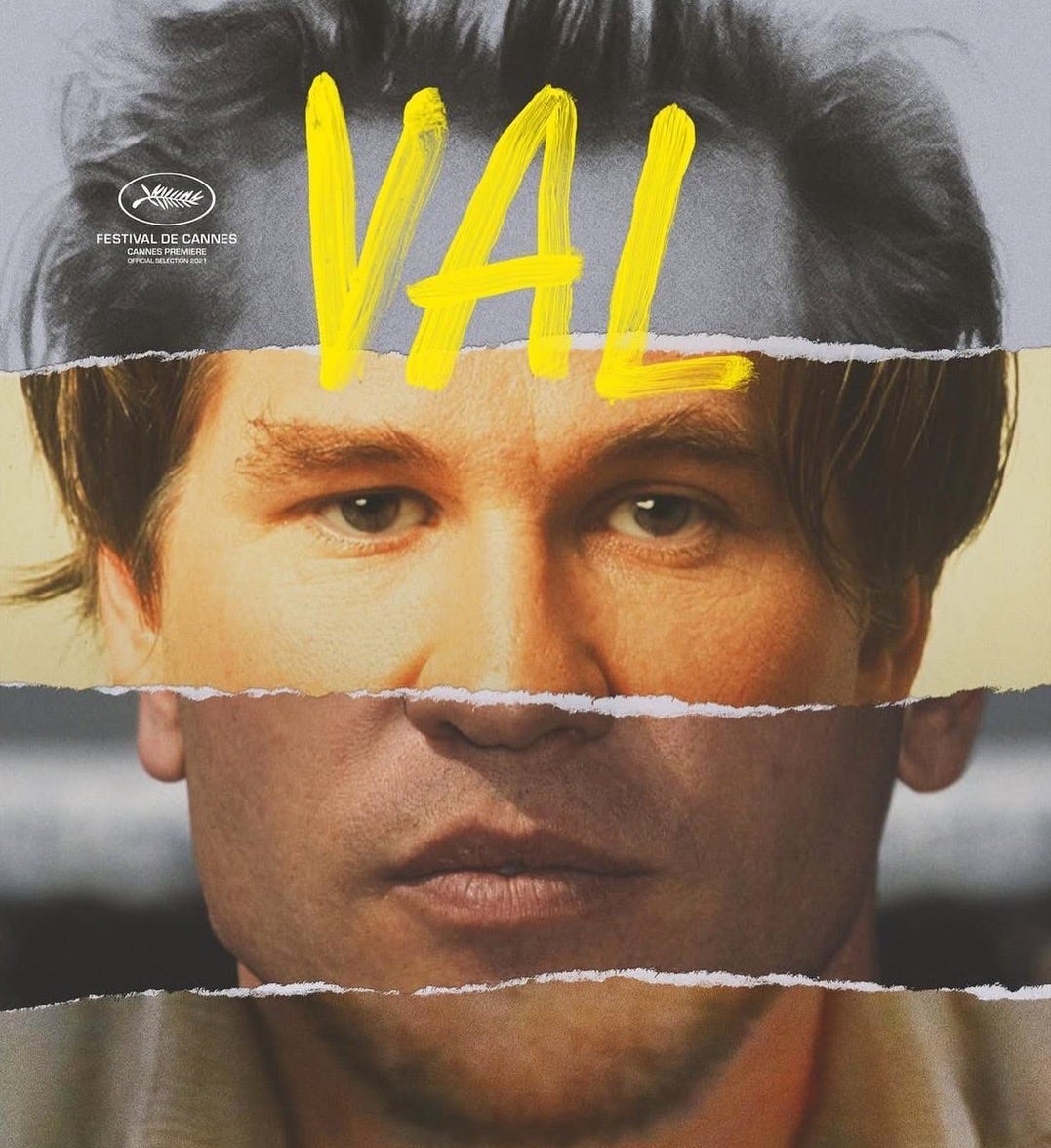
So beautiful and moving, Amar. Sounds like life has really been testing for you recently. You have such a huge heart, and always admire your honesty on here with difficult topics. I'm sure your words will help others struggling with the sam emotions. Thinking of you and your dad. Rest up when you can too!
I’m so sorry you’re going through this. Keep strong